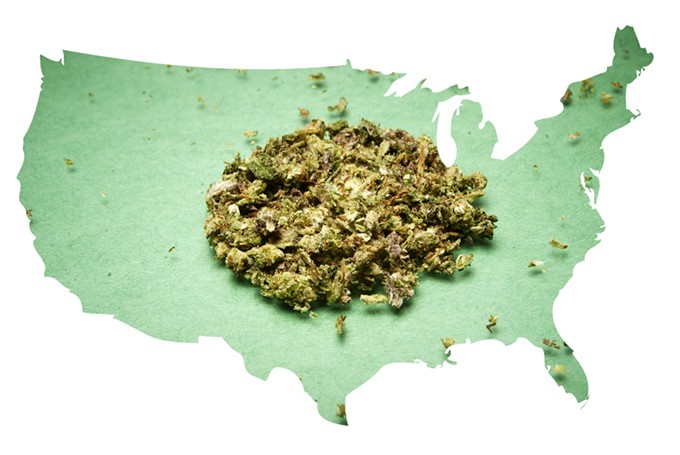Several states are poised to go toe-to-toe with the federal government if the new administration makes any moves to curb recreational marijuana efforts.
Press secretary Sean Spicer piped up about the industry during his press conference on Feb. 23, making a very clear distinction that the White House will only be concerned with recreational marijuana in the eight states that have legalized it.
"There's two distinct issues, here: medical marijuana and recreational marijuana," Spicer said.
He compared the comfort medical marijuana brings to individuals to the apparent "encouragement" recreational marijuana gives to a "blossoming" opioid epidemic across the nation.
It may be difficult for Spicer to identify the causal link between recreational marijuana and opioid addiction, since experts have yet to see any evidence that marijuana is helping to fuel the opioid epidemic.
In fact, some studies show that states that legalize medical marijuana prescribe fewer opioids resulting in fewer overdoses.
Meanwhile, several members of congress have formed the new Congressional Cannabis Caucus to protect their states' recreational marijuana industries and pass bills supporting the industry.
Members include Democratic Reps. Earl Blumenauer from Oregon, Dana Rohrabacher from California and Jared Polis from Colorado as well as Republican Rep. Don Young from Alaska.
Each of the members' states have legalized recreational marijuana, though not all recreational states are represented in the new caucus, notably Washington, Nevada, Massachusetts and Maine.
Governors from those states have been firing messages to the new administration attempting to provide some insight into the recreational marijuana industry.
Washington Gov. Jay Inslee sent a letter on Feb. 15 to newly-appointed Attorney General Jeff Sessions boasting the state's expected $272 million in taxes from marijuana in 2017.
Colorado Gov. John Hickenlooper expressed reservations about pulling out of the recreational marijuana "experiment" on an MSNBC segment on Feb. 24. He pointed out that 60 percent of Americans live in a state with either legal recreational or medical marijuana.
Colorado raised $70 million in taxes in 2015 from its marijuana industry.
California Lt. Gov. Gavin Newsom wrote a letter to President Donald Trump cautioning that a crackdown on marijuana would "strip the legal and publicly-supported industry of its business, and hand it back to drug cartels and criminals."
Rohrabacher has also introduced H.R. 975 "Respect State Marijuana Laws," a bill that would formally prohibit federal law enforcement from interfering with states' marijuana programs. The act is essentially a legal extension on the Obama administration's Cole Memo, which blocks the use of federal funds to uphold federal marijuana laws.
The political sparring between factions is only just beginning, yet the ball seems to be in the administration's court. State level politicians and members of Congress will have to hold their ground against the strong arm of the Oval Office if they hope to hold onto their marijuana.
However it plays out, medical marijuana doesn't seem to be in the administration's sights, so if you have your green card, there's little to worry about.










